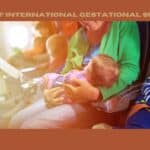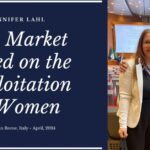As the ordeal in South Korea continues over the break up of the U.S./South Korean egg trafficking agreement, Rick Weiss has a good piece out in the Washington Post. Seems noone is still willing to address this issue of egg donation, proper informed consent, and financial compensation of women donors before running down the path of embryo cloning research. These concerns are at the heart of this latest fiasco. Were female students in Woo Suk Hwang’s lab, compensated for their eggs? Were female students who were involved in the research using their own eggs? Was proper informed consent given? Can proper informed consent even be given when we are talking about unethical research and the use of human subjects? Can donors be compensated? Oops! How many breaches of ethical conduct can you count?
Weiss states, “With current techniques, it takes dozens of eggs to make a single cloned human embryo, which is destroyed in the process of extracting the stem cells. That means that if the field of therapeutic cloning is to advance — a field involving the creation of cloned embryos as sources of stem cells that would be genetically matched to particular patients — a significant number of eggs will be needed both to fuel the initial research and eventually to satisfy the demands of patients.”
Did I hear him say clone? And notice that a significant number of eggs will be needed to satisfy the demand. Some have done that math and researchers will need hundreds of thousands of eggs for this designer patient research. While it is nice to know that we are needed, this is not good news for us.
Author Profile

- Jennifer Lahl, MA, BSN, RN, is founder and president of The Center for Bioethics and Culture Network. Lahl couples her 25 years of experience as a pediatric critical care nurse, a hospital administrator, and a senior-level nursing manager with a deep passion to speak for those who have no voice. Lahl’s writings have appeared in various publications including Cambridge University Press, the San Francisco Chronicle, the Dallas Morning News, and the American Journal of Bioethics. As a field expert, she is routinely interviewed on radio and television including ABC, CBS, PBS, and NPR. She is also called upon to speak alongside lawmakers and members of the scientific community, even being invited to speak to members of the European Parliament in Brussels to address issues of egg trafficking; she has three times addressed the United Nations during the Commission on the Status of Women on egg and womb trafficking.
Latest entries
 infertilityApril 23, 2024The Rise of International Gestational Surrogacy in the U.S.
infertilityApril 23, 2024The Rise of International Gestational Surrogacy in the U.S. Assisted Reproductive TechnologyApril 16, 2024Founder Jennifer Lahl’s Speech on Surrogacy to the Casablanca Declaration
Assisted Reproductive TechnologyApril 16, 2024Founder Jennifer Lahl’s Speech on Surrogacy to the Casablanca Declaration #BigFertilityFebruary 27, 2024No, Alabama Didn’t Ban IVF
#BigFertilityFebruary 27, 2024No, Alabama Didn’t Ban IVF ArticleSeptember 25, 2023The Little Engine That Could
ArticleSeptember 25, 2023The Little Engine That Could

